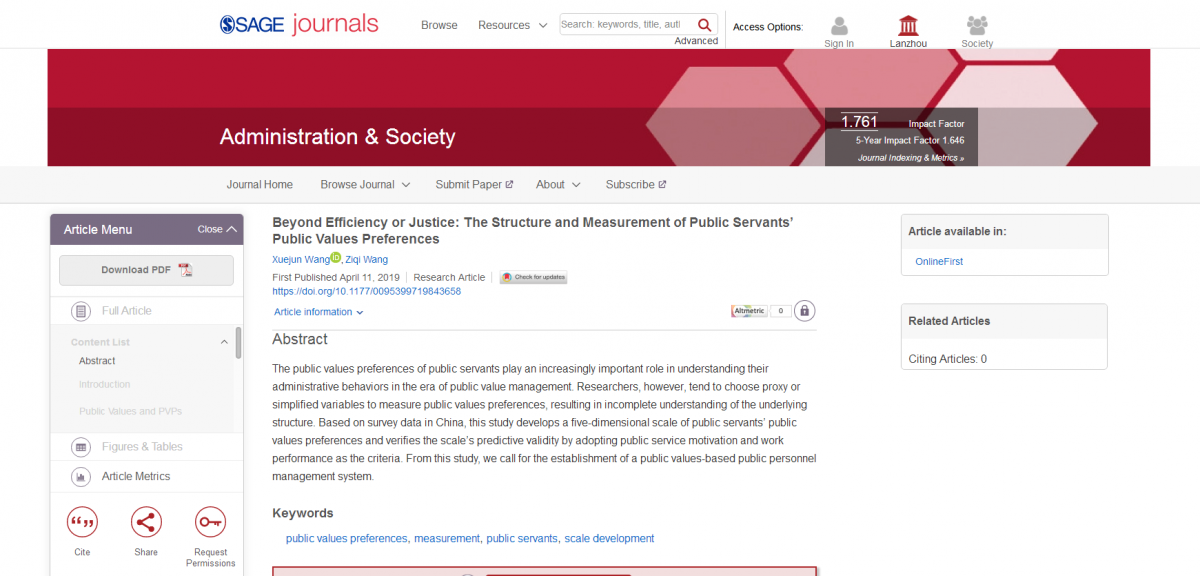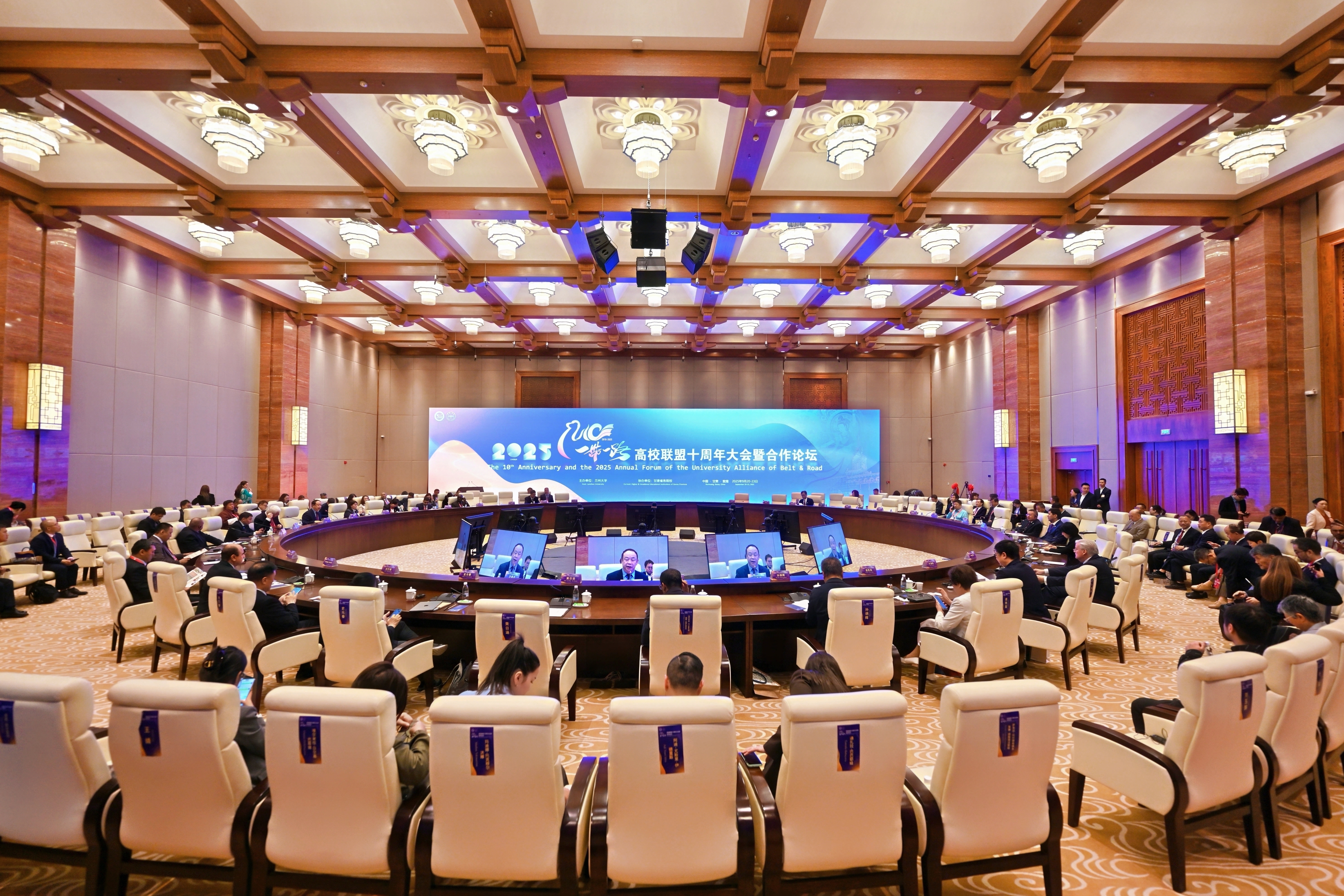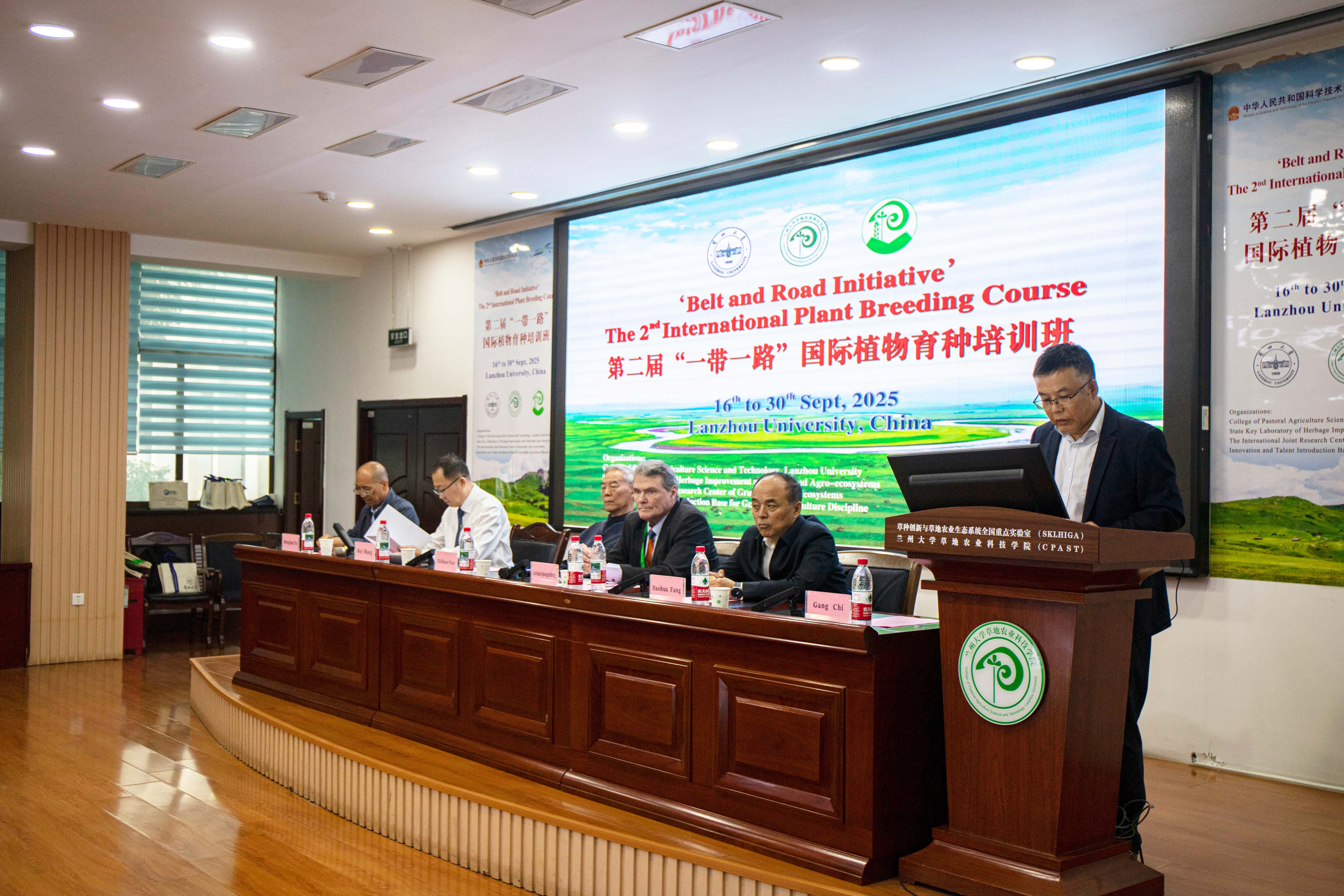
Recently, the top journal in Science of Public Management Administration & Society published the paper titled as Beyond Efficiency or Justice: The Structure and Measurement of Public Servants' Public Values Preferences by LZU Professor Wang Xuejun, who is also a member of Chinese Government Performance Management Research Center, and his master student Wang Ziqi. Based on the survey data of Chinese civil servants, the paper systematically developed the measurement structure and scale of civil servant public value preference for the first time. This is the fifth research paper published by the mainland Chinese scholars in Administration & Society since the publication of the magazine in 1969. It is also the second time that LZU Professor Bao Guoxian's research team published research papers in the magazine. The research results marks that LZU Government Performance Management Research Team has been further recognized by the international academic community of public administration.
The study pointed out that in the era of public value management, the public spirit and value recognition held by civil servants themselves will become an important internal incentive factor affecting performances. The public value preferences of civil servants gradually become the key of their administrative behaviors. However, current researchers tend to use proxy or simplified variables, such as the binary structure of "efficient or fair" to measure public officials' public value preferences, which leads to inadequate understanding of their essential structure. The study develops a five-dimensional public value preference scale for civil servants based on data from China and verifies the predictive validity of the scale based on public service motivation and job performance. In this study, the authors call for the construction of a public personnel management system based on public values.
The study conducts according to the standard scale development steps. First, on the basis of literature review, the paper defines public value preference as: " A measurable, relatively stable cognition which individuals instructing themselves to judge certain values when participating in public activities, making decisions for public interest, or managing other subject relationships in the public domain and governance networks." Influenced by Confucianism, the public value preference of Chinese civil servants have unique connotation. Therefore, a semi-structured interview and an open questionnaire jointly form a project library of public value preferences. Secondly, the exploratory factor analysis is carried out. It is found that the public value preferences of civil servants is a five-dimensional oblique structure. The dimensions include virtue-type preference, authoritarian preference, transformational preference, institutional preference and civil rights preference. The analysis of confirmatory factor demonstrates the five-dimensional 22-item civil service public value preference scale has good structural validity. Finally, the selection of job performance and public service motivation as criterions proves that the scale has well benchmark validity, and at the same time verifies that the measurement is not interfered by social claims.
The research is of great enlightenment for understanding and measuring public value preferences. Meanwhile, the research results have a strong reference value for public personnel management. On the basis of the research process and results, the thesis calls for the construction of "public personnel management system based on public value" and refines the management enlightenment. First, with the increase of complexity of the public value structure, the public value preference structure from the early public administration theory lacks explanatory power, and the public personnel manager needs to reconstruct the dynamic and falsifiable value structure. Second, in the age of value pluralism, there is no scale which can measure all conflicting values, but it is dangerous not to measure or simplify the measurement of public value preferences for public personnel management. And public personnel managers can use one scenario-dependently high-order measurement scales to measure key values and to select appropriate value management strategies accordingly. Thirdly, public service motivations are not all to which public personnel managers should pay attention when selecting, training, evaluating and motivating civil servants. The practitioners also should pay enough attention to the matching between civil servant's public value preference and organizational value. The article concludes that since the structure and content of public value preferences may change with culture, responsibilities of institution and mechanism, all public personnel management based on public values should be both evidence-based and context-dependent.




